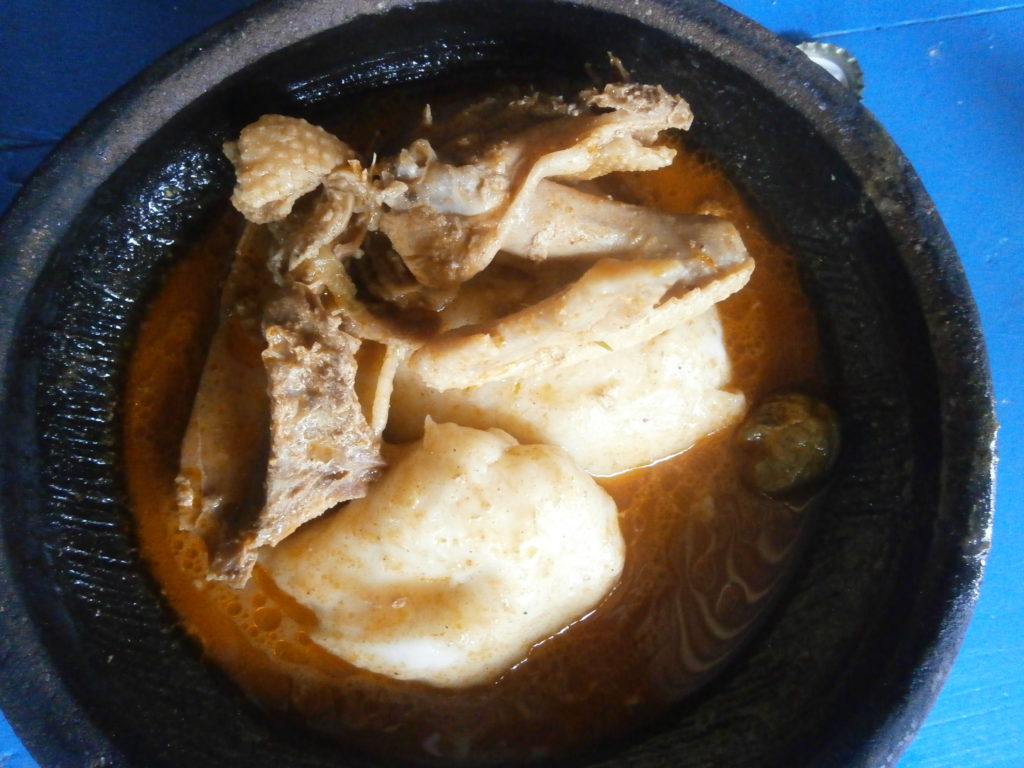What the #Fufuchalllenge Says About The Internet’s Entitlement to Black Culture [@morayo.om]
![What the #Fufuchalllenge Says About The Internet’s Entitlement to Black Culture [@morayo.om]](https://guap.co.uk/wp-content/uploads/2021/02/maxresdefault-180x180.jpg)
The latest aspect of Black culture that has taken off on TikTok is the #fufuchallenge.
Contribution by Morayo Omogbenigun.
In 2021, everything is up for grabs to be a viral trend. The pandemic has meant that many of us are spending more time than usual indoors, with technology being our form of escapism. Tiktok has served this purpose for me – I am currently in lockdown by myself, so the 60-second clips provide some company. I sit there for hours scrolling through videos and feel somewhat accomplished. In my many hours of scrolling, I have noticed a pattern replicated elsewhere in internet pop culture – Black people are constantly creating the newest trends on TikTok, without much credit.
Your best luck of getting recognition is if you’re a dancer – take the delayed fame of Jalaiah Harmon, creator of the viral ‘Renegade’ dance made popular by white dancers. The latest aspect of Black culture that has taken off on TikTok is the #fufuchallenge. Fufu is a staple in many West African diets and is eaten with a variety of stews and soups. When Joeneen Hull noticed African TikTokers enjoying fufu online, she went to Veronica’s Kitchen, a Nigerian restaurant, in Inglewood, California. Since then, her TikTok has amassed over 6 million views, and business at Veronica’s Kitchen and African restaurants in the USA particularly have experienced a boom in business as more hop on the trend.
“The trend started off as an innocent way to share African culture; however, people’s disappointment when they tried fufu has turned disrespectful.“
The trend started off as an innocent way to share African culture; however, people’s disappointment when they tried fufu has turned disrespectful. Dissatisfied TikTok users have thrown their fufu in the bin, asked if it was dog food, and spat it out on camera. Why is this so important, and hurtful to the African community worldwide? Since capitalism and the internet has made it so easy to profit off Black culture without paying them their due respect or the correct remuneration, it would not be a stretch to say non-Black people feel entitled to Black culture. Going back in history, we can see a pattern of Black people not having ownership over their creations or how they are interpreted.
From minstrel shows to the current music industry where white executives make millions compared to their signed artists, Black people are rarely able to gate-keep culture for our own benefit. Take the discourse around who is allowed to say the n-word for example – non-Black people are so frustrated when told they cannot say it because Black people wanting to reclaim a word previously used to discriminate against us isn’t a good enough excuse. Instead of acknowledging the need for reclamation, the conversation turns into ‘it’s just a word’ or ‘no one should say it if everyone can’t’. They are upset because it means they cannot rap their favourite Travis Scott song freely, and they can’t fully co-opt Black slang without it. Why can’t Black people be exclusive about who partakes in our culture without being made to feel bad for it?

“Moreover, the aspects of Black culture deemed palatable are often from African Americans. Attempts to make African cultures ‘trendy’ end up in people laughing at us, instead of with us.“
Moreover, the aspects of Black culture deemed palatable are often from African Americans. Attempts to make African cultures ‘trendy’ end up in people laughing at us, instead of with us. For example, the “Don’t leave me!” trend started by Nigerian comedian Josh Alfred turned into people attempting to imitate his Nigerian accent, and going for the commonplace ‘African accent’ we see in movies like Coming to America. Or, the homogenisation that occurs with trying to represent all African cultures turns into ‘you should be lucky people are paying attention to your (inferior) culture’. Inevitably, this leads to the ‘African American’ vs ‘African’ diaspora wars, where each side spout criticisms that have been implanted in their minds by white supremacy – Africans are dirty and poor, African Americans are lazy.
People deserve the right to be dissatisfied with food they eat (I don’t like fufu myself), but in this case, the history of disrespect towards African culture has meant that criticisms of fufu have read anti-Black and upheld assumptions about African culture. TikTok users trying fufu have been frustrated at ‘buying the wrong one’ because they haven’t been bothered to research the different types. They often just go for the nearest West African restaurant and will blurt out ‘fufu’ when ordering, unaware of the differences in preparation across the Continent. Africans expressing their valid discontent with the trend is being viewed as us not being grateful that people have taken an interest in our (inferior) cultures. Which again, is anti-Black and rests on the assumptions that Africa is a country (not a Continent), and Africans are always looking for handouts from the West to appreciate our culture, because we can’t possibly be content in our huts and villages.
Unlike Dalgona coffee, fufu cannot be made from things you just happen to have around the house if you aren’t Black. Fufu can be made from a variety of starches – cassava, plantain, even oatmeal. Fufu is not convenient and accessible, like the internet is used to with Black culture. It requires more than streaming a song on Spotify or slipping “periodt” into a tweet. Not all areas of Black culture can be commodified and turned into a trend, and that is okay. Black people do not exist solely as objects who churn out popular phrases or dance moves.
Contribution by Morayo Omogbenigun.
Check out the GUAP Arts & Culture section, to discover new art, film, and creative individuals.

